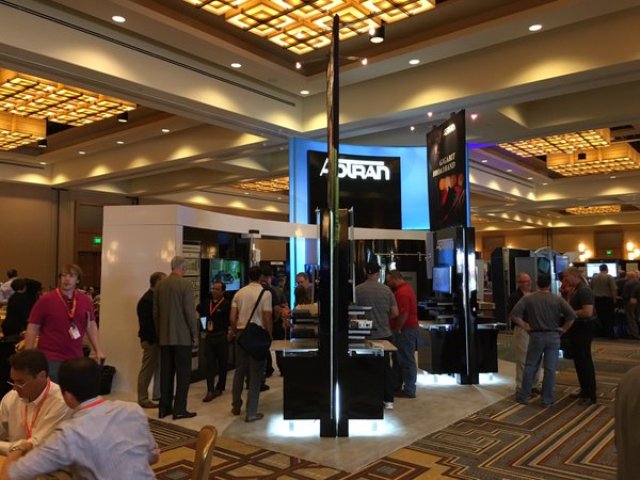 ADTRAN has revealed nbn deal in Australia and the FTTB project with Deutsche Telekom to improve customer experience.
ADTRAN has revealed nbn deal in Australia and the FTTB project with Deutsche Telekom to improve customer experience.
ADTRAN has tied up with Deutsche Telekom to start of lab testing of the latest innovations in the G.fast standard, 212MHz and coordinated dynamic time allocation (cDTA).
Deutsche Telekom is evaluating ultra-broadband technologies using Fibre-to-the-Building (FTTB) deployment models allowing the use of existing cable infrastructure within the home. This will allow the rapid deployment of ultra-fast and gigabit broadband services with minimal disruption.
ADTRAN demonstrated the new 212MHz G.fast standard, which doubles the usable spectrum. This doubling of the usable spectrum allows service providers to deliver gigabit rates over a single copper pair, enabling robust fibre-like service delivery all the way to the customer premise.
In contrast to cable systems, the bandwidth of G.fast is dedicated and available for each customer. The tests, leveraging the first commercially available 212MHz DPU also demonstrated the second phase of DTA.
cDTA, like the earlier iDTA feature, improves G.fast upstream performance by four to five times by dynamically balancing upstream and downstream capacity to match residential traffic patterns in real-time. cDTA also expands the applicability of this feature to existing phone wiring, thus covering nearly all residential and commercial premises.
“Operators in highly competitive, dense urban or urban environments are challenged to extend gigabit services due to the time and cost that can be associated with pure play FTTH techniques,” said Jay Wilson, senior vice president at ADTRAN.
Deutsche Telekom has 165 million mobile customers, 28.5 million fixed-network lines, and 18.5 million broadband lines.
ADTRAN announced the signing of a supply agreement to advance high-speed broadband access to the citizens of Australia.
Kathrine Dyer, nbn’s chief network deployment officer, said: “We will work with ADTRAN on bringing the nbn network into reality including working together on our world leading Fibre-to-the-Curb (FTTC) network that is set to serve more than one million homes and businesses around the country by 2020.”
ADTRAN’s Software-Defined Access (SD-Access) solutions combine modern web-scale technology with open-source platforms to facilitate rapid innovation in multi-technology, multi-vendor environments.
SD-Access unlocks control and management functions from the underlying network elements, enabling a more flexible, agile services delivery framework. This service agility stems from an open microservices architecture that allows network operations and IT development teams to align.
“ADTRAN’s highly programmable SD-Access solutions utilize an open microservices architecture that support the adoption of network automation that reduces service provisioning times, human error and IT complexity, while enabling the desirable customer self-service capabilities,” said Jay Wilson, ADTRAN SVP for Technology and Strategy.
ADTRAN reported Q2 2017 sales of $184.7 million compared to $162.7 million and net income of $12.4 million against $10.2 million.
